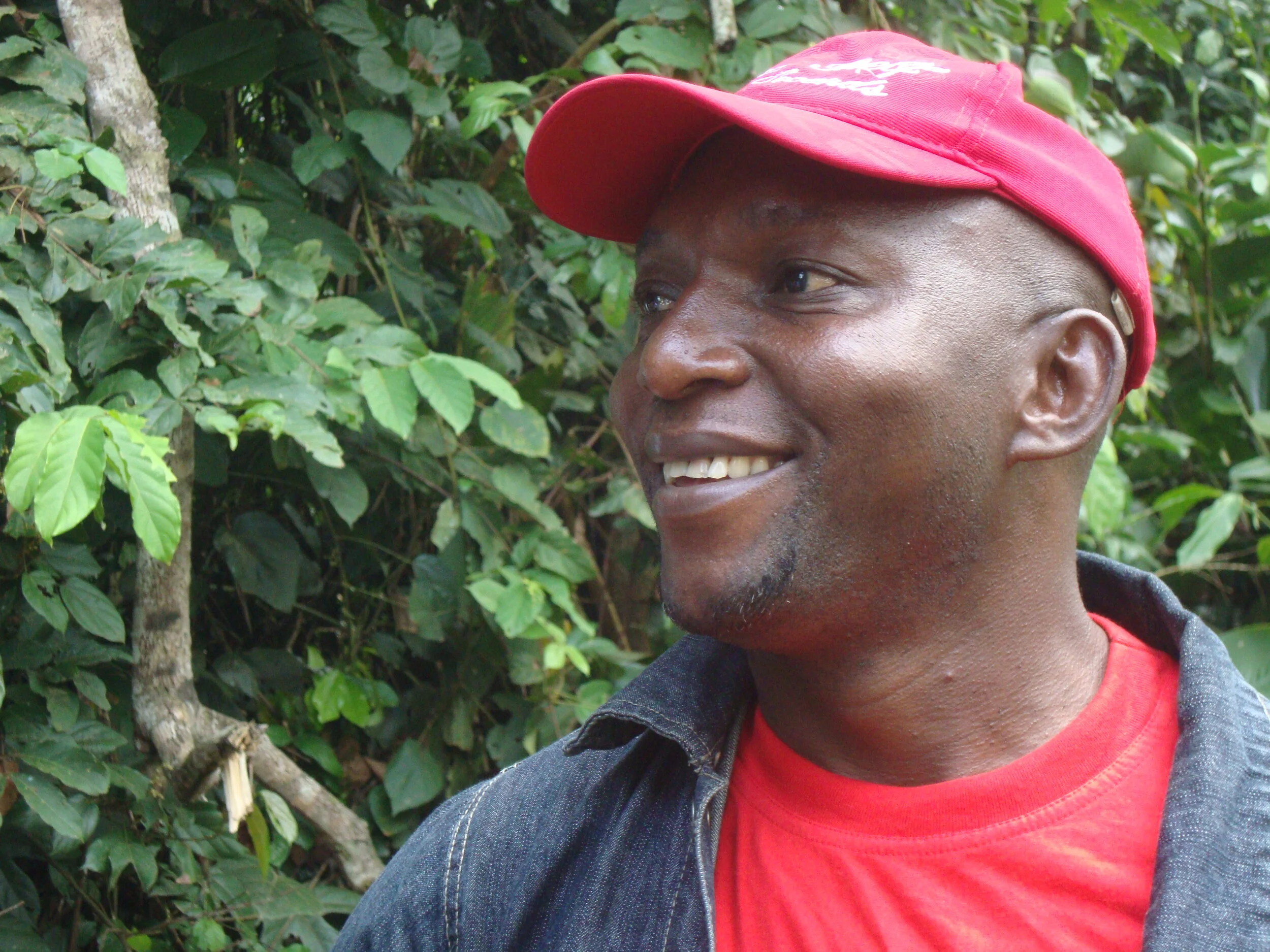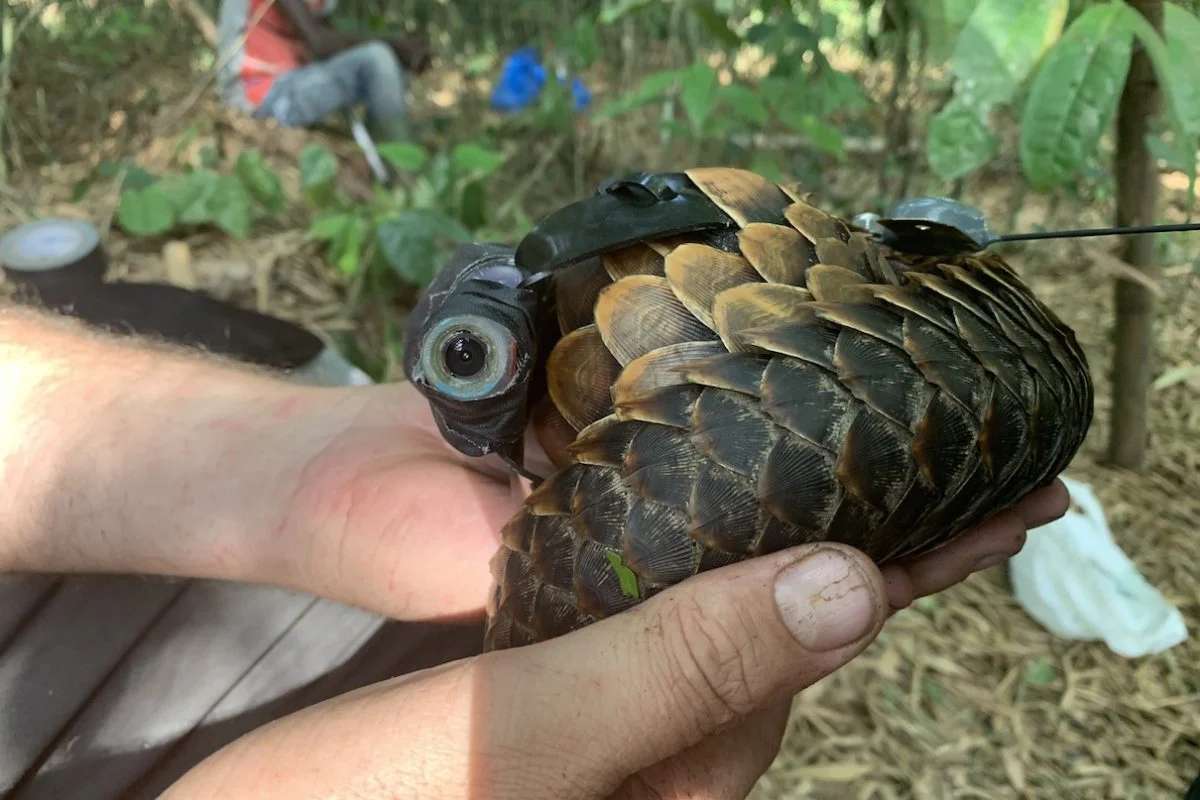All sessions from the Pangolins & the Pandemic are available to watch for free on our YouTube channel.
The Wildlife Justice Commission’s Early Analysis of COVID-19 and its Impact on Illegal Wildlife Trafficking
The Wildlife Justice Commission (WJC), a grantee of the Pangolin Crisis Fund, has published an early analysis of COVID-19’s impact on illegal wildlife trafficking. Using intelligence gathered from undercover operatives, the WJC report shows that the effects of the COVID-19 pandemic have extended to wildlife poaching and trafficking networks, hindering business operations.
The Pangolin Crisis Fund Celebrates a Successful First Year
The Pangolin Crisis Fund (PCF) was established in May of 2019 by Save Pangolins in collaboration with the Wildlife Conservation Network to supply funding to pangolin conservation projects in Africa and Asia. The organizations supported by the PCF advance pangolin rehabilitation, release and conservation and enhance efforts to stop illegal poaching and trade. As the PCF turns one, we’re taking a look back at the building blocks of progress it has made in just one year’s time.
Save Pangolins Featured on the TODAY Show and NBC News About COVID-19
Save Pangolins' co-founder and Executive Director Paul Thomson was interviewed for a segment that appeared on the TODAY Show and NBC Bay Area. The reports covered the connection between the Wuhan wet markets and the COVID-19 pandemic. Pangolins have been linked to COVID-19 as a possible intermediary source that transferred the virus from bats to humans.
New Report by United Nations Office on Drugs and Crime Describes Global Pangolin Trafficking Trends
The United Nations Office on Drugs and Crime (UNODC) has released a chapter of its annual report, Wildlife Crime: Pangolin Scales, early due to its relevance to the COVID-19 pandemic. As millions are sheltering in place and over two million people have become infected with COVID-19, international attention has turned to wildlife trafficking and its reported links to the pandemic.
Pangolin Conservationist Eric Kaba Tah Nominated for Prestigious Indianapolis Prize
Save Pangolins aims to shine a light on some of the inspiring conservationists working to protect pangolins around the world. Here, we would like to recognize Eric Kaba Tah, a pangolin conservationist who has been nominated for the prestigious Indianapolis Prize in 2020. The Indianapolis Prize is awarded to a conservationist who has had a profound impact on wildlife conservation.
COVID-19 and Pangolins: the Facts
Coronavirus Outbreak Triggers New Measures Against Wildlife Trade in China
On February 24th 2020, China’s top legislature announced a significant ban on the trade and consumption of wild animals. The new measures come amid growing public concern about the spread and impact of the coronavirus, COVID-19, and the consumption of wild animals. The Standing Committee of the National People's Congress (NPC) adopted a decision, which took effect on the same day, “thoroughly banning the illegal trading of wildlife and eliminating the consumption of wild animals to safeguard people’s lives and health.”
New Report Shows Pangolins Are Trafficked at Unprecedented Levels
The Wildlife Justice Commission (WCJ) released a comprehensive report today showing that pangolin trafficking has reached unprecedented levels in recent years, despite increased efforts to reduce the issue.
Possible Link Between Pangolins and Coronavirus
The Pangolin Crisis Fund's Plan to Save Pangolins in 2020
Pangolins in Sri Lanka Under Threat
The Indian pangolin, the only species of pangolin found in Sri Lanka, has long been hunted for meat, but is facing a rising threat from poachers transporting their scales to Asia. A team of researchers lead by Priyan Perera has been studying pangolins in Sri Lanka since 2013. The conservationists recently documented an illegal trade route from northwest Sri Lanka to India by fishing boat and then on to China, where the scales are used in traditional medicine.
Training Pangolin Conservationists in Peacebuilding
Save Pangolins sponsored two pangolin conservationists, Divine Chakombera and Elisa Panjang, to attend the Fundamentals for Conservation Conflict Transformation workshop in Arusha, Tanzania in September 2019. The Center for Conservation Peacebuilding ( CPeace ) training taught participants about the complex and diverse conflicts that affect conservation organizations and how to address them, such as the deep-rooted conflicts in conservation that can arise from complicated networks of diverse government agencies, non-governmental organizations, communities and lawmakers all working together. Over the course of five days, the training covered various types of social conflict that impact wildlife conservation and different tools for mitigating them. Participants learned mediation techniques to be able to diplomatically resolve issues between parties and had the opportunity to role play real-life scenarios.
Elisa Panjang and Divine Chakombera
Divine Chakombera, the Legal Liaison Officer of Tikki Hywood Foundation, traveled from Zimbabwe to attend the CPeace training. The Tikki Hywood Foundation is a 24-hour wildlife rescue center and conservation organization that focuses on pangolins and other lesser known endangered African species. According to Divine, “The ultimate aim for Tikki Hywood Foundation is to ensure that the pangolin as a species is protected and conserved.” The Foundation aims to advance conservation efforts through community outreach, education and awareness, and legislation that protects wildlife. Divine attended the workshop to learn new skills and to be able to take the concepts and strategies of Conservation Peacebuilding back to the Tikki Hywood Foundation’s comprehensive pangolin conservation initiatives. On the first day, participants were taught to categorize different types of conflict and the driving force behind them. “The levels of conflict theory further clarified my perspective on the notion that conservation issues are about people versus people,” said Divine. “One is compelled not to just analyze conflict at face value but rather employ a deeper analysis.”
Elisa Panjang, Ph.D. Student at Cardiff University and Pangolin Conservation Officer at the Danau Girang Field Center in Sabah, Malaysia, traveled to the CPeace workshop interested to learn more about human behavior and social conflicts relating to conservation. Elisa said, “I learned to not judge and reduce negative perceptions of an agency, organization, community or group and their actions.” Elisa found the workshop to be eye opening and a valuable opportunity to connect with other conservationists. “I feel that I will improve my internal and external communication, cooperation and collaboration if I continue to practice the skills taught at the training workshop,” she said. A week after the CPeace workshop in Tanzania, Elisa traveled to Thailand for another conservation workshop focusing on the Sunda pangolin. She has recommended the workshop to her fellow pangolin conservationist peers in the hopes that it will help them just as much is it helped her.
Group photo of the CCT participants and trainer
After attending the workshop, both Divine and Elisa feel better equipped to address the different social conflicts that arise in conservation, to understand opposing ideas without prejudice, and to communicate and collaborate effectively with diverse agencies, organizations and communities. Divine said, “The lessons learnt at the CCT capacity building workshop will further strengthen our team and help us achieve one of our key mandates that is utilizing conservation and education as stepping stones towards a future where humans live in harmony with wildlife.” The workshop garnered a strong sense of community among the participants, who came from all over the world. They connected through shared experiences and the collective goal: to become better conservationists. Elisa told us, “because of this new family, I feel that I am not alone in my fights.” Both conservationists were grateful to have attended the workshop and are eager to put their new tools and strategies to use in fighting for pangolin conservation. Conservation peacebuilding is a core tenant of the Save Pangolins strategy. Through promoting and implementing conservation peace building, Save Pangolins fosters lasting relationships and inclusive processes within the pangolin conservation community that increase the likelihood of long-lasting initiatives to benefit pangolins.
First Ever Footage from Pango-Cam
A first-of-its-kind technology called the Pango-Cam offers conservationists new insight into the daily life of a pangolin. Located high on the back of the pangolin, with a view over the top of its head, this new technology will help conservationists study the behaviors and habits of pangolins. The camera is flexible, yet durable to accommodate pangolins swimming, climbing, and rolling into a ball for protection.
Pangolins at CITES CoP18
Governments reaffirmed their commitment to pangolin conservation in August at the Convention on International Trade in Endangered Species (CITES) Conference of Parties 18 (CoP18), an international conference held every three years to discuss trade restrictions on wild animals. At the conference, the IUCN SSC Pangolin Specialist Group announced that more than 500,000 pangolins have been trafficked globally in the past three years.
The Pangolin Crisis Fund: Hope for Pangolins
Times of crisis bring watershed moments, turning points that inspire change. In a crisis we rise to a challenge, banding together to prevail. And since necessity is the mother of invention, a crisis is when we spark new ideas and forge new paths forward.
Today we are announcing that together with Wildlife Conservation Network and in partnership with the Leonardo DiCaprio Foundation, we are launching the Pangolin Crisis Fund to help save one of the world’s most unique animals from extinction.
National Geographic: Poaching is sending the shy, elusive pangolin to its doom
National Geographic Magazine’s June 2019 issue includes a powerful article on pangolins — the Magazine’s first ever feature article on pangolins. Author Rachael Bale and photographer Brent Stirton convey the crisis facing pangolins through the lens of the people involved in pangolin conservation on the ground.
Save Pangolins was consulted throughout the development of the story and co-Founder Paul Thomson is quoted within the text. The article is already generating a lot of discussion online. This is an example of how powerful storytelling can shed light on an important but little-known conservation issue — as only National Geographic can do.
World Pangolin Day: New Video Premiere
World Pangolin Day is this Saturday, February 16th. This annual movement has helped people all over the world discover pangolins and find out how to get involved in their conservation.
For World Pangolin Day, we are releasing a short film by Coral & Oak Studios. It is a powerful story that follows a poached pangolin from forest to dinner plate. This unfortunate pangolin represents just one of many: in only a decade, more than 1,000,000 pangolins have been poached for their meat and scales.










































